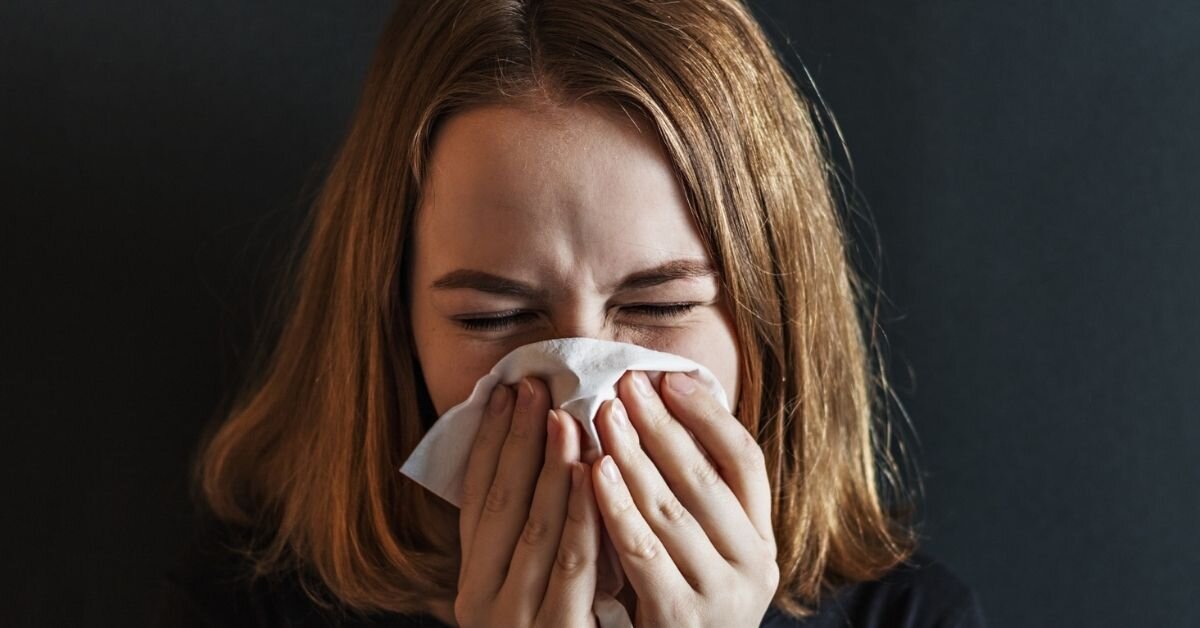Viruses are tiny germs that easily spread from one person to another. Whenever you contract a Viral infection such as flu or cold, your Immune system responds and goes into overdrive, causing the body temperature to rise so that a less hospitable environment for the germs and viruses is created.
Viral infections do not respond to antibiotics like a bacterial infections; instead, they run their course and can take days to a week to go away depending upon the Type of infection and body immunity.
However, there are certain things you can do to manage Viral infection symptoms. Please read our article to learn more.
Viruses are infectious agents made up of DNA or RNA, including the coat of protein that antibiotics cannot destroy.
Viruses invade the body cells and use the components of the body cell to multiply. In this process, the infected cells are destroyed or damaged.
Any Health condition caused due to a virus is termed a viral disease. Most of the viral diseases are contagious such as common cold, flu, herpes, HIV, COVID-19. But, not all viral diseases spread from person to person.
Common Symptoms Of Viral Infections

The symptoms of viral infections depend upon the type of virus. We have listed a few common Viral infection symptoms. Have a look:
- Abdominal pain
- Headache
- High fever
- Fatigue and tiredness
- Diarrhea
- A sore throat
- Running nose
- Coughing
- Chills
- Muscle ache
- Nausea and vomiting
- Skin rash
- Neck stiffness
- Seizures
- Fatigue
- sleepiness
- Confusion
Not all people suffering from viral infection symptoms need medical treatment. If the symptoms are mild, wait for a few days as most of the Viral infection symptoms disappear on their own due to activation of the body defense mechanism that destroys the virus.
Symptoms Of Serious Viral Infection

Usually, viral infections are not that serious or life-threatening. However, they become troublesome in some scenarios. Viral infections are considered severe if:
- The symptoms and complaints last for more than 7 seven days
- High fever for more than 5 days
- Red rashes or spots on the body
- Breathlessness
- Pale skin
- Diarrhoea and vomiting leading to dehydration
- Impaired bladder functions
Different Types Of Viral Infections

Respiratory viral infection – The most common Viral infection is a respiratory infection. Respiratory viral infections commonly affect the upper and lower part of the respiratory tract and are contagious, such as common cold, flu, covid-19, severe acute respiratory syndrome, adenovirus, and influenza.
The common symptoms of respiratory viral infections include coughing, sneezing, running nose, stuffy nose, body ache, fever, and chills.
Respiratory infections spread via droplets generated through sneezing or coughing. If someone nearby you with viral illness sneezes or coughs and you inhale the infected air droplets, you may develop the disease.
In some cases, respiratory viral infections also spread through contaminated objects such as tabletops, doorbells, and personal items.
If you touch the infected objects and then touch your eyes, mouth, or nose, you may develop the disease.
To manage respiratory viral infection over the counter medication such as cough suppressants, pain relievers, and decongestants are given. In addition, in some cases, antiviral drugs are prescribed.
Gastrointestinal Viral Diseases – Viral diseases that affect our digestive system are known as gastrointestinal diseases or gastroenteritis.
The common symptoms include nausea, vomiting, diarrhea, and abdominal cramps. A few examples of gastrointestinal viral diseases include rotavirus infection, norovirus infection, astrovirus infection, and in some cases, adenovirus infections.
Gastrointestinal viral diseases spread through food or water contaminated by feces or sharing personal objects or utensils contaminated by the infected person.
In most cases, GIT viral infections resolves on their own in a day or two. However, to replace the lost fluids, drink lots of fluids.

Hepatic viral diseases – Hepatic viral diseases leads to inflammation of the liver due to hepatitis A, B, C, D, and E.
Hepatitis C is transmitted through bodily fluids, such as blood contact on sharing razors or needles or during a blood transfusion.
Hepatitis B transmits through sexual contact. Hepatitis A and E contracts by consuming infected water of food. Those who have hepatitis B virus can develop Hepatitis D.
The treatment of hepatitis A and E includes supportive measures such as drinking lots of fluids, avoiding alcohol, and rest. In hepatitis B, C, and D, along with managing symptoms, the doctor may also prescribe antiviral drugs.
Neurological Viral Infections – Viral encephalitis such as West Nile virus and rabies affects human brain. Viral meningitis causes inflammation of tissues of brain and spinal cord.
The symptoms of neurological viral diseases include confusion, fever, drowsiness, seizures, and coordination issues.
Neurological diseases may spread by the bite of infected insects. Neurological viral diseases such as poliovirus is spreads by close contact with infected individuals.
There is no specific treatment for mild encephalitis or meningitis. Take plenty of rest, stay hydrated and take anti-inflammatory to ease headaches and body ache.
In some cases, antiviral medications are prescribed. Severe cases require IV fluid and breathing assistant. In case of rabies virus caused due to infected animal bite series of shots are given to prevent you from getting infected.
Exanthematous viral diseases – Viral infections such as measles-rubella chickenpox, smallpox, Chikungunya shingles, etc., cause skin rashes with other symptoms.
Most of them spread through infected respiratory droplets; others spread through contact with the fluid from the broken skin lesions of infected individuals. Shingles is the reactivation of the varicella-zoster virus that causes chickenpox.
Treatment of exanthematous viral diseases includes people-reducing medications. In chickenpox or shingles, antiviral drugs are given.
Hemorrhagic Viral Diseases – Hemorrhagic viral diseases cause damage to the circulatory system and can be severe. Common examples are dengue fever, yellow fever, Ebola, etc. Dengue and Yellow fever are spread through the bite of an infected insect.
Ebola spreads through contact with infected body fluids. Others, such as Lassa fever, is caused due to consuming or inhaling dried feces of the rodent with the virus.
There is no specific treatment for hemorrhagic viral diseases. However, intravenous fluids are given to maintain electrolyte balance. In some cases, the antiviral drug ribavirin is given.
How To Prevent Viral Infections

To prevent viral infections, practice hygiene. Wear mask in-crowd. Cover your mouth and nose while sneezing or coughing, avoid touching your mouth, nose, and eyes, and wash your hands frequently.
Wash your hands before eating, cooking, and after using washroom. Prevent mosquito bites. Do not share utensils or personal items and practice safe sex.
Prevention is always better than cure. Therefore, follow precautions to prevent viral infections and eat a nutritious diet to strengthen body immunity.
Antibiotics cannot treat viral infections. Viral infections resolve on their own but sometimes may prove serious. Follow precautions to prevent viral infections.







